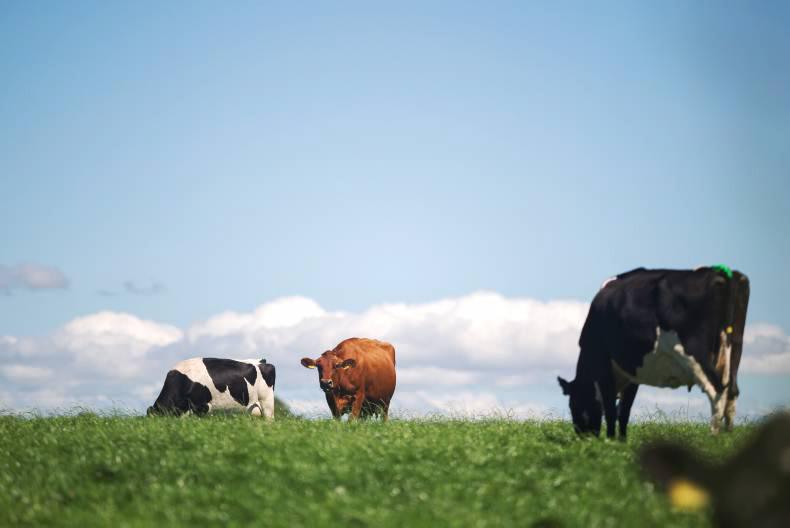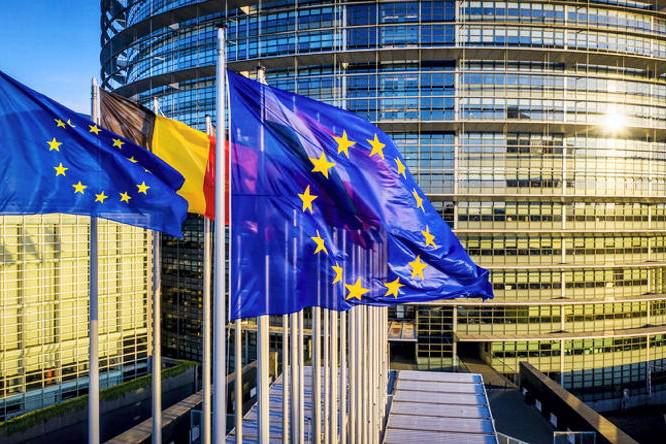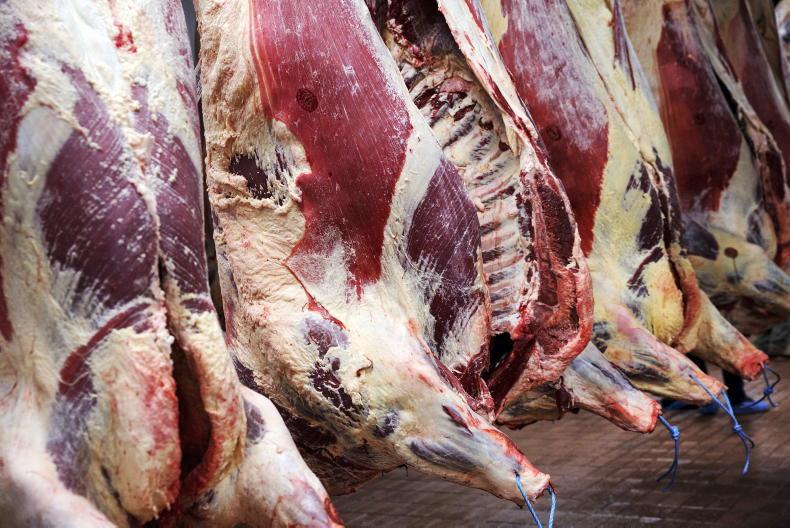In the immediate aftermath of the Brexit poll result, a sense of panic and uncertainty gripped many parts of the Irish agriculture and farming sectors.
The importance of the UK to Ireland for food trading cannot be underestimated, with 42% or €4.1bn of our food and drink exports shipped to the UK each year.
As the dust begins to settle following the Brexit vote, nobody can exactly be sure what the real implications of this historic decision will have on Ireland’s agriculture industry in the long term.
In the short term, we have seen an immediate effect on beef, with an average 20c/kg wiped off beef prices following the vote. While processors argue this is a result of the drop in value of sterling, farmers believe it may be opportunism from beef factories to cut prices.
Currency volatility
The market volatility in the wake of the Brexit vote has largely been played out in the global currency markets. The initial shock to markets from the Brexit vote saw sterling weaken as much as 16% against the euro to lows of £0.86. Sterling dropped even more against the US dollar as it fell to its lowest point in more than 30 years, below $1.28.
The collapse in the value of sterling has meant that Irish exports to the UK are more expensive and less competitive. As the UK is Ireland’s largest trading partner, this will certainly have direct implications for Ireland’s food and agri sector and may see Britain substituting Irish imports for cheaper commodities elsewhere.
Food companies and traders spoken to by the Irish Farmers Journal have said that after the initial shock of the Brexit decision, markets seem to have stabilised. There has been no major shifts seen in the Irish dairy, pig or poultry sectors.
Businesses in these sectors have been somewhat insulated by existing supply contracts already signed with trading partners across the Irish Sea. Many Irish food processors could have supply contracts signed for as far ahead as 90 to 120 days. This would mean for some, despite the immediate currency volatility, the shock from Brexit has been offset by the security of these supply contracts.
Uncertainty
Once the UK triggers Article 50 to set in motion the process to leave the EU, a prolonged period of difficult and complicated negotiations will begin that will create further uncertainty for markets and businesses.
From an Irish perspective, our agri-food sector is extremely exposed to the UK market and there will be serious concern around import substitution.
Notably, our beef sector would stand to lose the most. Britain is only 70% self-sufficient for beef with Ireland making up a large quantity of that shortfall with some 230,000t of Irish beef exported to the UK last year. The threat of cheaper beef imports from countries like Brazil and New Zealand is a real danger to farmers here.
A month on from Brexit day, the world is still turning. However, sentiment among farmers has been hit and there are fears for the future. As important as sentiment is, no food company has been able to find a buyer for it yet.
The immediate priority for Ireland will be to emphasise the importance of our special trading relationship with our nearest neighbour at EU level and secure the best possible trade agreement with the UK.
Read more
Full coverage: Brexit
In the immediate aftermath of the Brexit poll result, a sense of panic and uncertainty gripped many parts of the Irish agriculture and farming sectors.
The importance of the UK to Ireland for food trading cannot be underestimated, with 42% or €4.1bn of our food and drink exports shipped to the UK each year.
As the dust begins to settle following the Brexit vote, nobody can exactly be sure what the real implications of this historic decision will have on Ireland’s agriculture industry in the long term.
In the short term, we have seen an immediate effect on beef, with an average 20c/kg wiped off beef prices following the vote. While processors argue this is a result of the drop in value of sterling, farmers believe it may be opportunism from beef factories to cut prices.
Currency volatility
The market volatility in the wake of the Brexit vote has largely been played out in the global currency markets. The initial shock to markets from the Brexit vote saw sterling weaken as much as 16% against the euro to lows of £0.86. Sterling dropped even more against the US dollar as it fell to its lowest point in more than 30 years, below $1.28.
The collapse in the value of sterling has meant that Irish exports to the UK are more expensive and less competitive. As the UK is Ireland’s largest trading partner, this will certainly have direct implications for Ireland’s food and agri sector and may see Britain substituting Irish imports for cheaper commodities elsewhere.
Food companies and traders spoken to by the Irish Farmers Journal have said that after the initial shock of the Brexit decision, markets seem to have stabilised. There has been no major shifts seen in the Irish dairy, pig or poultry sectors.
Businesses in these sectors have been somewhat insulated by existing supply contracts already signed with trading partners across the Irish Sea. Many Irish food processors could have supply contracts signed for as far ahead as 90 to 120 days. This would mean for some, despite the immediate currency volatility, the shock from Brexit has been offset by the security of these supply contracts.
Uncertainty
Once the UK triggers Article 50 to set in motion the process to leave the EU, a prolonged period of difficult and complicated negotiations will begin that will create further uncertainty for markets and businesses.
From an Irish perspective, our agri-food sector is extremely exposed to the UK market and there will be serious concern around import substitution.
Notably, our beef sector would stand to lose the most. Britain is only 70% self-sufficient for beef with Ireland making up a large quantity of that shortfall with some 230,000t of Irish beef exported to the UK last year. The threat of cheaper beef imports from countries like Brazil and New Zealand is a real danger to farmers here.
A month on from Brexit day, the world is still turning. However, sentiment among farmers has been hit and there are fears for the future. As important as sentiment is, no food company has been able to find a buyer for it yet.
The immediate priority for Ireland will be to emphasise the importance of our special trading relationship with our nearest neighbour at EU level and secure the best possible trade agreement with the UK.
Read more
Full coverage: Brexit









SHARING OPTIONS